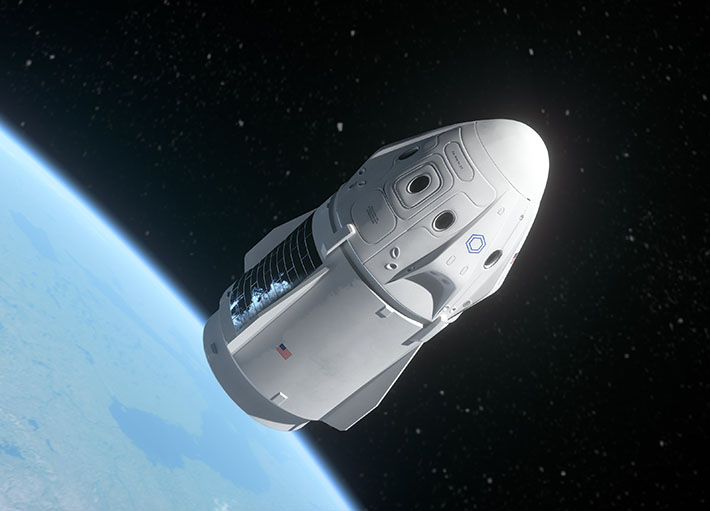
Safety of Suborbital Vehicles
A new standard developed by ASTM International’s commercial spaceflight committee (F47) establishes a failure tolerance for suborbital vehicles specific to situations of occupant safety.
Failure tolerance, also known as fault tolerance, is the ability of a system to continue satisfying safety or operational objectives in the event one or more components fail.
“Failure tolerance provides a protective measure against inevitable uncertainties in spaceflight,” says ASTM International member Andrew Lake. “The new standard helps provide the framework for consistent occupant safety approaches across original equipment manufacturers and suppliers.”
According to Lake, director of system safety and reliability engineering for Blue Origin, the standard also helps system designers and manufacturers evaluate the effectiveness of design solutions to meet occupant safety objectives.
“The new standard provides an objectives-driven approach to safety, rather than a prescriptive approach,” says Lake, “providing more room for innovative solutions without compromising safety.”
Lake notes the standard (F3479) provides a view of failure tolerance that includes expectations for system safety engineering, human error tolerance, and single points of failure.
For more on how ASTM International’s commercial space flight committee standards will contribute to the future of space tourism, watch this VIDEO.
 SN Home
SN Home Archive
Archive Advertisers
Advertisers Masthead
Masthead RateCard
RateCard Subscribe
Subscribe Email Editor
Email Editor